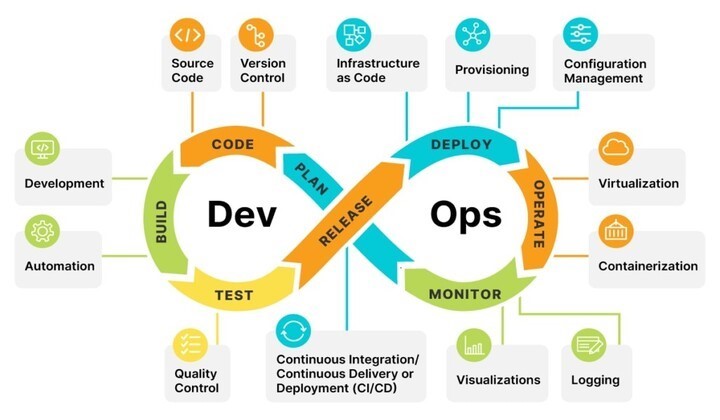DevOps vs Cloud Architect: Understanding the Difference
As advancements in technology surge forward, roles such as DevOps Engineers and Cloud Architects have become pivotal in the IT ecosystem. These positions are integral to creating, implementing, and managing systems, but their goals, concepts, and required expertise vary significantly. This article explores the contrasts, overlaps, and practical applications of DevOps and Cloud Architects, providing clarity on how these roles complement organizational processes.
DevOps Explained
DevOps, a fusion of Development and Operations, is a collaborative methodology aimed at eliminating barriers between software development and IT operations teams. Its primary objective is to enhance application and service delivery through rapid iteration cycles, continuous integration, and smooth deployment processes.
Core Duties of a DevOps Engineer:
- Process Automation: Leveraging CI/CD pipelines to automate repetitive actions like testing, integration, and deployment of code.
- System Monitoring: Using real-time tools to ensure system uptime, reliability, and optimal performance.
- Team Collaboration: Uniting development, QA, and operations teams to optimize workflows and promote cooperative environments.
- Handling Incidents: Addressing system outages and implementing rollbacks swiftly with minimal disruption to end-users.
Common Tools in DevOps:
- Jenkins
- Docker
- Kubernetes
- Terraform
- Puppet
- Splunk
Understanding the Role of a Cloud Architect
A Cloud Architect devises, manages, and scales cloud computing solutions tailored to an organization’s needs. Their role ensures cloud systems are secure, adaptable, and cost-efficient, employing cloud platforms like AWS, Azure, or Google Cloud Platform (GCP) to achieve these goals.
Primary Responsibilities of a Cloud Architect:
- Infrastructure Design: Building cloud solutions and infrastructure aligned with business targets and scalable growth.
- Cost Optimization: Managing and minimizing cloud operational costs for maximum efficiency.
- Security Implementation: Employing measures, including encryption, firewalls, and IAM protocols, to protect organizational data.
- System Migration: Supporting the transition of on-premise systems to cloud environments.
Frequently Used Tools and Platforms by Cloud Architects:
- Amazon Web Services (AWS)
- Microsoft Azure
- Google Cloud Platform (GCP)
- AWS CloudFormation
- Azure Resource Manager
- VMware
Contrasting DevOps and Cloud Architect
Though both DevOps engineers and Cloud Architects operate within modern IT infrastructure, their goals, deliverables, and focus areas diverge.
| Aspect | DevOps Engineer | Cloud Architect |
|---|---|---|
| Main Objective | Facilitating teamwork between development and ops teams to enable faster deployments. | Developing and overseeing scalable, cloud-centric solutions to meet organizational demands. |
| End Goal | Enhancing software delivery speed and efficiency via CI/CD practices. | Ensuring secure and cost-optimized cloud infrastructure operations. |
| Technology Focus | Automation pipelines, performance monitoring tools, and script-based activities. | Cloud-based platforms, infrastructure-as-code frameworks, and architecture design. |
| Essential Skills | Scripting, coding, CI/CD setup, collaborative problem-solving. | Expertise in cloud systems, cost control, security protocols, and hybrid environments. |
Deciding Between DevOps and Cloud Architect
Your decision to utilize a DevOps professional or a Cloud Architect should align with your organizational strategy and infrastructure requirements:
When a DevOps Engineer is Ideal:
- Accelerated software delivery without compromising on quality is a priority.
- Automation of regular tasks is fundamental.
- Your framework adheres to agile methodologies.
When to Opt for a Cloud Architect:
- Transitioning systems to the cloud is on your agenda.
- Scalability, performance, and financial efficiency hold key importance.
- Your goal is a comprehensive, cloud-native operational setup.
Final Thoughts
Both DevOps Engineers and Cloud Architects are indispensable for today’s IT operations, but their purposes differ greatly. DevOps emphasizes streamlined, automated software development cycles, while Cloud Architects focus on designing and managing robust cloud infrastructures that support these processes. By evaluating your business objectives and IT requirements, you can decide the expertise to leverage, enabling a strategic advantage in the digital era.


